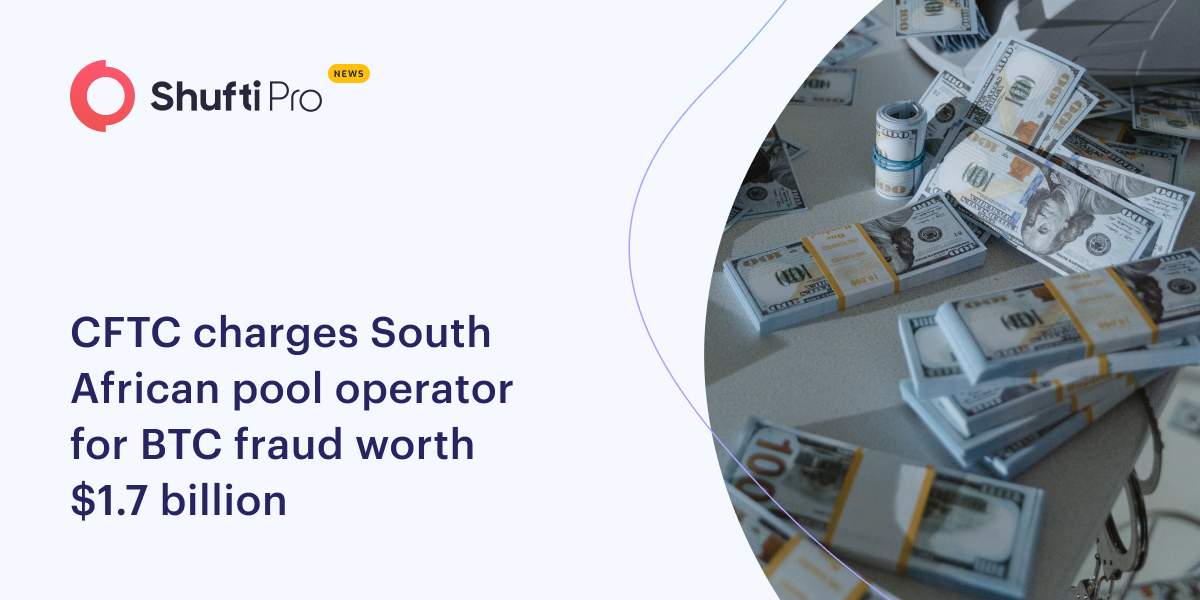CFTC Charges South African Pool Operator for BTC Fraud Worth $1.7 Billion

CTFC charges a South African pool operator Steynberg for the largest fraud case in the region involving a $1.7 billion BTC scam
CTFC (Commodity Futures Trading Commission) the trading and market industry watchdog of the US is now suspecting its largest scam scheme case implicating Bitcoin. The regulator announced the legal filing of civil enforcement action against a South African man on Thursday.
The charge was filed against Cornelius Johannes Steynberg, who was an unregistered commodity pool operator working in the Mirror Trading International Proprietary Limited (MTI). Both bodies were filed with claims of fraud and violations in the license under the U.S District Court for the Western District of Texas.
This action was committed a few days after the slamming of a $1.37m fine on Starberry Limited by CFTC. The organisation was performing its operations as a futures commission merchant without a legal permit.
According to the US directive market supervisor, Steynberg from South Africa created and ran the global; foreign commodity pool through MTI. The organisation was operated by the laws of the country, only the verified investors are allowed to participate in the MTI pool via paying with the BTC.
The commodity pool operator subsequently generated a massive amount of over $1.7 billion by charging from more than 23,000 investors from the US and across the world. These investors were ECPs (Non-eligible contract participants) as reported by the CFTC.
Steynberg alongside mirror trading subsequently misappropriated, either directly or indirectly, all of the Bitcoin fund (Approx. 29,421BTC) as disclosed by the CFTC.
The US financial industry watchdog said, “this action is the largest fraudulent scheme involving Bitcoin charged in any CFTC case,” it added: “The commodity pool was controlled by MTI and Steynberg and purportedly traded off-exchange retail foreign currency on a leveraged, margined and/or financed basis with participants who were not eligible contract participants (ECPs) through what the defendants falsely claimed was a proprietary ‘bot’ or software program,”
The American Commodity commission also pointed to the financial industries of South Africa, Belize and Finland including the US Federal Bureau of Investigation’s Southern District of New York Field Office, also provided in the case.
Suggested Read: Gary Gensler- Former CFTC Chair to Join President-Elect Biden’s team as Financial Expert.

 Explore Now
Explore Now













